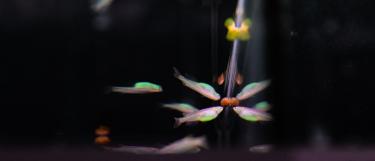
Research groups
The Centre for Organismal Studies Heidelberg provides a vibrant research environment for more than 250 scientists organized in 25 departments and research groups. Our work centers around organismal biology and spans all biological kingdoms, imploying a rich spectrum of methods and approaches from all life science disciplines.






















